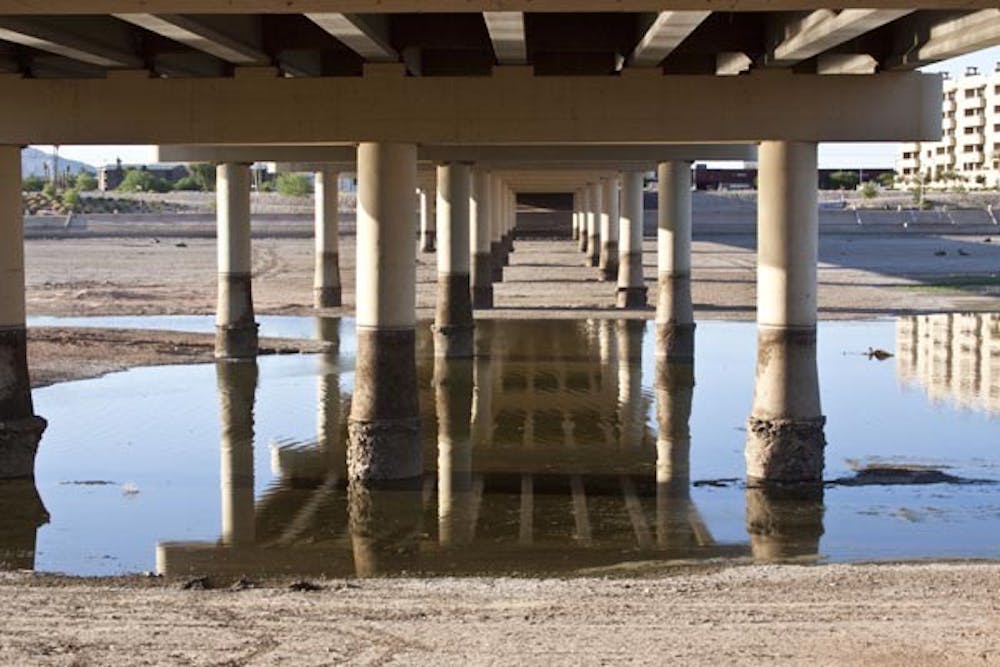As efforts to fill an empty lake continue, Tempe officials and ASU clubs are looking for alternatives to being on the water.
The leaders of ASU’s rowing and sailing clubs hope the July 20 dam burst that emptied Tempe Town Lake won’t put a stop to their plans this semester.
ASU Rowing Club’s head coach Ken Donnelly plans to use the situation in a positive way.
He wants to focus more on training and conditioning in preparation for getting back on the water in the winter. This training will include heavy use of indoor rowing machines, known as ERGs.
The lake’s draining comes at a time when the rowing club is trying to revitalize the sport at ASU. Donnelly is attempting to increase awareness of the club on campus and adding new coaching staff.
The biggest issue, Donnelly said, is the loss in new recruits who will simply not be interested in joining the club when they have very little chance of getting on the water.
“This year versus other years, we will go more for a second round of recruiting,” he said.
Two rowing meets that were scheduled at Tempe Town Lake in September and October are now canceled due to the lake draining.
The ASU Sailing Club will likely experience a major impact upon recruiting as well due to this issue, head coach Jake Geller said.
“We have our first intercollegiate regatta on the weekend of Oct. 23 in San Diego, and we need a place to practice beforehand,” Geller said.
The club is facing difficulties due to the extra expenses needed to haul boats and equipment, which are housed at the Tempe Town Lake Marina, to new practice locations that could include Lake Pleasant and other small lakes in the area.
Tempe officials have also attempted to offer alternatives to traditional rowing classes, said Denise Rentschler, marketing coordinator for Tempe Parks and Recreation.
The city is currently offering a paddling day at Lake Pleasant this Saturday, in which the city will transport all boating equipment to the lake for those who are interested.
At the time the lake drained, paddleboats were not being offered because of an expired contract with the vendor.
City officials also attempted to relocate classes to the Kiwanis Park Lake, but the lake is not big enough to hold rowing classes.
The city instead increased the number of rowing fitness classes offered in order to make up for missed classes on the lake. This also allows coaches a chance to continue working while waiting for regular rowing to resume, Rentschler said.
“The thought was … rather than losing all this money by not being able to offer the classes, we do what we can do to help so it’s not as much of a loss,” she said. “Our goal is to provide customers with options that meet their exercise and fitness needs so that when Tempe Town Lake is accessible, they are ready to get back out on the water.”
Compared with revenue received from July to December for 2009, city officials estimate a worst-case loss of $50,000 for 2010 as a result of the lake drain.
Three of the four replacement bladders will arrive in Tempe on Thursday and construction is scheduled to begin immediately, taking roughly two weeks to install each bladder. The fourth bladder is scheduled to arrive in October. Officials hope to have the lake open by Nov. 1.
Meanwhile, Donnelly says the ASU Rowing Club will try to use this as an opportunity to garner attention for the club, and hopefully recruit new members for the spring.
“We’re definitely trying to turn lemons into lemonade,” he said.
Reach the reporter at anatwood@asu.edu





